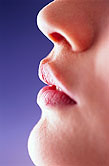
MONDAY, Feb. 28 (HealthDay News) — An estimated 32 million Americans suffer from chronic rhinosinusitis, in which inflammation of the lining of the nose and sinuses leads to congestion, pain and loss of smell. In the most severe cases, patients develop nasal polyps that can make the symptoms even worse.
The standard therapy is to begin with a steroid nasal spray and then move on to a more powerful steroid pill if topical steroids don’t work. That’s because although oral steroids are more effective at reducing inflammation, they can also carry serious side effects, such as an increased risk for osteoporosis, insomnia or worsening of asthma.
But a new study by researchers in Scotland suggests that starting with a short course of oral steroids can safely improve symptoms and may help avoid the need for surgery.
“The principal problem with nasal polyps is that the plumbing of the sinuses is jammed, so merely taking nasal steroid sprays if you have medium to large polyps will not unblock this,” said lead author Dr. Sriram Vaidyanathan, a sinus and allergy specialist at Ninewells Hospital and the University of Dundee. “An initial short course of oral steroids under the supervision of your doctor may help the nasal sprays to penetrate into the sinus openings.”
“To give an analogy, the initial ‘mowing of the lawn’ is needed before the ‘weedkillers’ are sprayed,” Vaidyanathan added.
For the study, published March 1 in the Annals of Internal Medicine, Vaidyanathan and his colleagues followed 60 patients who had chronic rhinosinusitis with nasal polyps. For the first two weeks of treatment, half took an oral steroid pill once a day, while the other half took a placebo. After that, both groups received the same treatment: eight weeks of steroid nose drops, taken twice a day, followed by 26 weeks of a twice-daily steroid nasal spray.
Over the course of therapy, the patients who took oral steroids experienced a greater reduction in the size of their polyps and a greater improvement in their sense of smell than those in the placebo group. Athough blood tests after the first two weeks showed evidence of adverse effects among the patients taking oral steroids, those tests returned to normal by 10 weeks, the study authors said.
“We believe that using oral steroids safely and under supervision of a physician can act as a ‘medical polypectomy’ and prevent unnecessary surgery,” said Vaidyanathan. “Moreover, patients are amazed that they can smell again, which is something that nasal sprays can’t achieve on their own.”
The authors of an editorial accompanying the study called the study “a welcome addition to the evidence about strategies to manage patients who have chronic rhinosinusitis with nasal polyps.”
But they cautioned that doctors should temper their enthusiasm for oral steroid therapy due to the potential side effects, which they noted are likely to be “greatest among elderly patients, postmenopausal women and those who receive repeated courses of oral therapy.”
In light of the potential risks associated with oral therapy, the study authors said oral steroid therapy should be initiated only when patients with chronic rhinosinusitis with nasal polyps have an unsatisfactory response to at least three months of treatment with intranasal corticosteroids.”
“Since rhinosinusitis with nasal polyps is a chronic disease, severe patients will probably need several courses of oral steroids during their lifetime or even in a single year,” said the editorial’s co-author, Dr. Joaquim Mullol, of the University of Barcelona’s Rhinology Unit and Smell Clinic. Starting with the most conservative treatment approach, he said, helps ensure that side effects are kept to a minimum.
One U.S. sinusitis researcher endorsed the study’s design, but agreed with the editorial authors’ conservative approach.
“This study is helpful to primary-care physicians as well as to patients because it very nicely demonstrates that if you’re caught between a rock and a hard place and you have to go on a short-term course of oral steroids, the risks may not be so harmful,” said Dr. Jean Kim, assistant professor of allergy and clinical immunology and otolaryngology, head and neck surgery at Johns Hopkins Medicine in Baltimore. “But it’s important to globally assess what the overall risks and benefits are to a patient.”
“In many causes, these are patients who also have asthma, and so they’re subject to repeated courses of oral steroids,” Kim added. “People with asthma do need to take an oral steroid, because if they don’t take it, they don’t breathe.”
More information
For more on sinusitis, visit the American Rhinologic Society.

